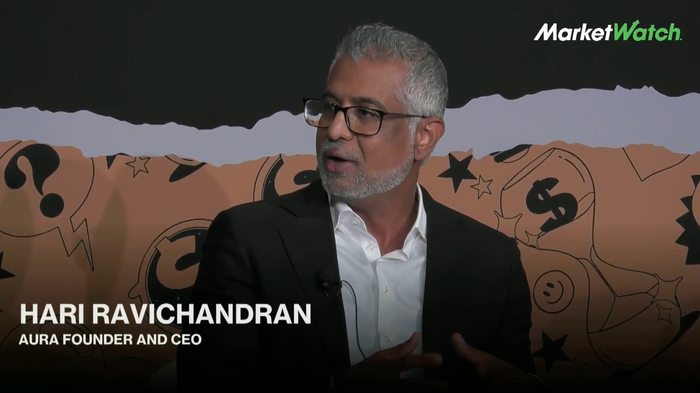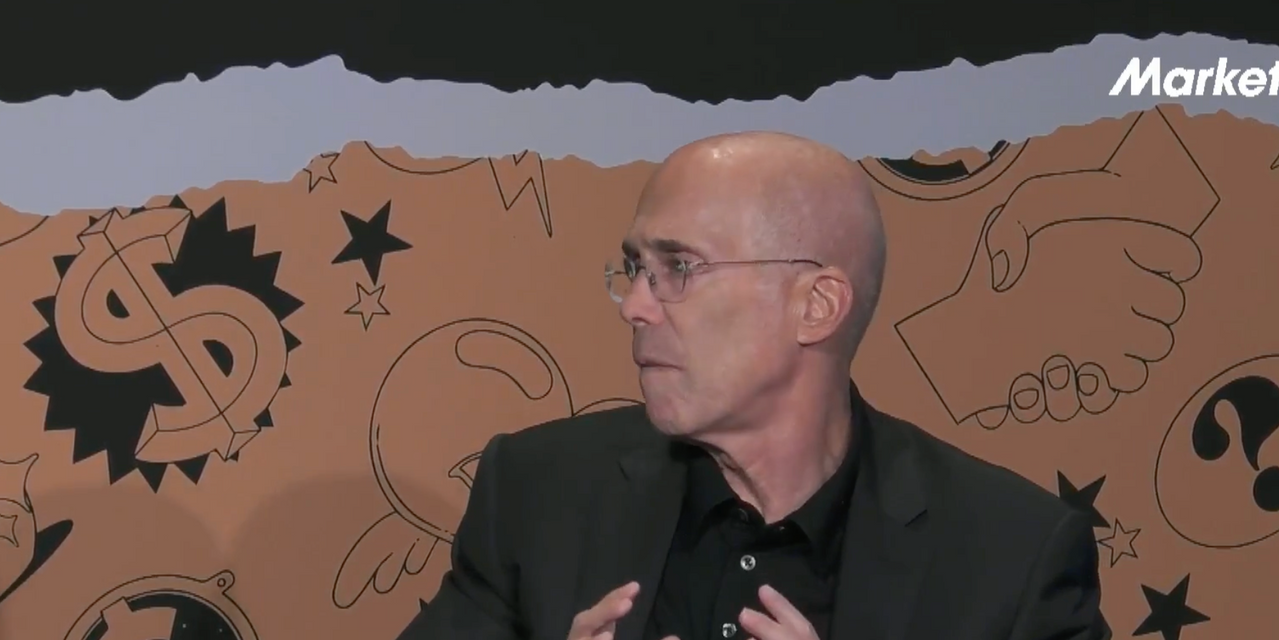Cybersecurity startup Aura is profitable and headed for $300 million in annual revenue, according to backer and Hollywood legend Jeffrey Katzenberg, but an initial public offering is not planned in the near term amid market volatility.
“We have $300 million in revenue, growing like a rocket ship, it’s a profitable business with hundreds of millions of dollars in the bank,” Katzenberg said in a discussion at MarketWatch’s Best New Ideas in Money Festival on Wednesday.
Katzenberg backed Aura through his venture-capital firm WndrCo, and it has gone on to raise more than $650 million, most recently at a $2.5 billion post-money valuation. The company disclosed annual revenue of $220 million while announcing its most recent round of funding late last year, but Katzenberg and Chief Executive Hari Ravichandran updated that figure at Wednesday’s event.
In a backstage chat, Aura founder Ravichandran clarified that the company expects to be at a $300 million annual run rate for revenue by the end of this year, and that it is profitable on a free-cash-flow basis. He said that he would expect to go public in the late 2024 to early 2025 time frame, based on market conditions.

Aura founder and Chief Executive Hari Ravichandran speaks Wednesday, Sept. 21, 2022 at the MarketWatch Best New Ideas in Money Festival in New York,
MarketWatch
In their discussion on stage, Katzenberg — known for co-founding DreamWorks and Quibi — said that Ravichandran has a mantra for Aura: “I have to run the company for value, not valuation.”
“There’s been so much exuberance the past two years that people start chasing the wrong metric,” Ravichandran said.
Ravichandran said backstage that the company is more interested in acquiring other companies than going public at the moment, as it looks to build on the core consumer product the company launched in June 2021. He voiced admiration at the M&A spree undertaken in recent years by cybersecurity firm Palo Alto Networks Inc.
PANW,
to offer a well-rounded security offering for businesses, and said he could see Aura doing something similar for consumer security.
As an example, Ravichandran pointed to the company’s acquisition of Circle late last year. He cautioned, though, that the market for private security companies may need some time to adjust asking prices amid the current market slump, suggesting that it may take six to nine months for asking prices to decline to reasonable rates.
In public markets, cybersecurity companies have struggled, with the ETFMG Prime Cyber Security ETF
HACK,
falling 26.2% so far this year. Palo Alto Networks stock, though, has held up thanks to its acquisition spree, falling just 7.8% in 2022 while the S&P 500 index
SPX,
has dropped 19.1%.
